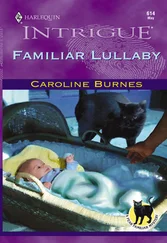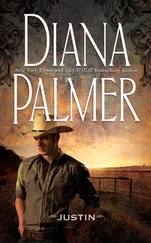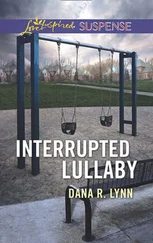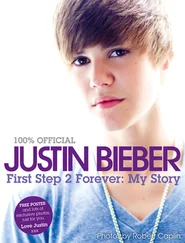Peter heard a bolt slam, then the door swung outward.
A doughy guy, dressed in filthy black clothes and dark aviator sunglasses, smiled at Albert. Except for his forehead and two semicircles beneath his eyes, the man’s whole head was covered uniformly with salt and pepper stubble. “Who’s your boyfriend?”
“This is the Big Man’s doctor,” the drummer said. “Bluto’s paying me to show him around.”
The man raised a pink, tender-looking hand in greeting. “Welcome to our corner of the quotidian. I’m the Blister.”
Peter introduced himself.
“Is there a name for the band’s bus?” Albert asked.
“You guys stay in the Toolshed, the gear rides in the Attic, and the Big Man rides in the Taj.”
“Where is the Taj?” Albert asked.
“It’s being converting to run on fry-oil,” said the Blister, “because of all the carbon-footprint Bolsheviks.”
“We fly most of the time,” added Albert.
“That’s what they call the royal we,” the Blister said. “Now, if you gentlemen don’t mind, I have to get back to work.”
PETER FOLLOWED ALBERT across a cement-floored staging area. They pushed through a curtain of heavy translucent plastic, past crates and boxes, and onto a black-planked stage. The houselights were off. Peter could make out only the first few rows of seats, but the sound of their echoing footsteps gave him a sense of the space. On a battered plywood riser, tilted cymbals, tom-toms, and a bass drum crowded around a yellow leather stool; the arrangement reminded Peter of a device his middle-school science teacher had used to demonstrate the orbits of the planets. Albert picked a yardstick off the stage and went about measuring the height of the leading edge of the drumheads, the separation between the hi-hats, the distance between the pedals on the floor. Then, after making some minute adjustments to the setup, he mounted the stool and measured everything again, this time with a pair of drumsticks in his hands.
At any moment, Peter expected the kid to uncork a little flourish, but he didn’t play.
“I imagine this is a dream job, playing with Jimmy.”
Albert squinted. “You see my name on the tickets?”
“Point taken,” said the Rochester Memorial/Tony Ogata Ambassador for Wellness.
Albert pointed his toe at a metal-reinforced box sitting on the corner of the riser. “Take a peek in there.”
Peter was reminded of those black-box data recorders designed to survive plane crashes. He flipped a pair of chrome latches and lifted the lid.
“It’s like seeing Dorothy’s ruby slippers, huh?”
Peter activated his phone’s camera. Clasping his wrist with his free hand, like a pistol marksman, he took a picture and forwarded it to Martin.
A moment later, Peter’s phone rang.
“I’m with a patient,” Martin said.
“You called me.”
“She has a question for you.”
A woman’s voice came over the line. “Are those Jimmy Cross’s harmonicas?”
“They are.”
“That’s so cool.”
Martin got back on the line. “If you didn’t need this so bad, I’d probably be jealous.”
Peter thanked his friend before hanging up. He felt as though someone had breathed on a coal inside his chest, as though some dull and ashy part of himself suddenly gave off light.
His phone vibrated as a text came in: Asshole .
Some people kill time, but I prefer to fill time. That’s why, instead of reading the newspaper or ducking into a bar, I choose to head over to Buffalo Airfield.
Before 9/11, 23a person could drive right onto the runway at most executive airports. Airstrips were tranquil, dreamy places; I never had any trouble getting copies of flight plans or manifests. I’d eat my lunch and watch a local orthodontist practice touch-and-goes in a kit plane he’d assembled in his garage.
Now there are gates and guardhouses. If I park outside the perimeter fence, sooner or later someone will come by to make sure I’m not part of a sleeper cell.
DRIVING AROUND THE airfield, every dirt turnout has a sign reminding me that the area is under surveillance and I need to keep moving. I wind up a quarter mile away, in the parking lot of a Jo-Ann Fabrics. It’s farther away than I’d like, but it’s under the approach path and no one is going to give me trouble for being there.
Cross is just one person, but he’s surrounded by a huge, grinding machine and that machine sometimes telegraphs its intentions. I think that’s why, some nights, I can guess which song he’ll play next — it doesn’t happen often, but when it comes to me I’m never wrong.
Sitting in the parking lot, I get the feeling that Jimmy is about to appear.
I glass the runway with my binoculars; my eyes pass over the Cessnas guy-wired to the ground, the tiny little control tower studded with radio antennae, and one of those whirligigs they use to gauge the wind. A man stands beside a Piper Cub; the engine cowling is folded back. An orange pickup makes a slow circuit inside the control fence. Near the tower, an old-timer astride a girl’s bike rides circles around a tied-up mutt. I check my watch. It’s a little after six. The doors open in less than an hour.
MY PHONE RINGS. It’s Patricia. She knows I have to answer because we have a child together.
“Hello, Arthur.”
“Did you have another dream?” Back in August she called to tell me that she’d dreamed that I’d died “alone in a hotel room” and she wanted me to make arrangements so, if I did pass away, Gabby wouldn’t be the one to be notified by the police — in Patricia’s dream, the police had called our daughter at work.
“Don’t be a curmudgeon. Are you in Buffalo?”
“Is that why you called, to ask where I was?”
“Promise me you’re going to see Gabrielle when you get down to Kentucky.”
“I talked with Gabby yesterday.”
“I know that. Why do you think I called you? I want you to promise me that you will see her. Don’t screw this up.”
Two blocks away, I spot a black limousine waiting at a traffic light.
I promise her that I’ll see Gabby.
“It appears you were off for a couple days. How’d that go?”
She’s needling me.
“Yesterday I told someone I was married.”
I have her attention, because all of a sudden she’s quiet.
“It was a slipup.”
“I hope you’re not losing your marbles.”
The limousine pulls up in front of the airfield’s gate. I watch the gatekeeper pedal over.
“Is there anything else?”
“Give Gabrielle your approval.”
“Don’t I need to know what I’m approving?”
“No,” Patricia says, almost yelling.
The orange truck jounces across the infield.
“Repeat after me: I will give her my approval .”
“I will give her my approval.”
“You sound distracted.”
I recite my line again.
“I got my hair cut last week,” Patricia says. “I’m too old to wear it long. Maybe if I were a public intellectual.” 24
I tell her she’s not that old.
“You’d probably say I look like a lesbian.”
“That doesn’t sound like me.”
A small jet roars overhead. The tires kiss the runway and leave a puff of white smoke. I tell Patricia I have to go.
“For a person who does nothing, you stay awfully busy. Aunt Liddy would be so proud.”
Patricia specializes in the parting shot. Sometimes it feels as though she’s giving herself an alibi in case anyone ever accuses her of caring about me. It doesn’t escape me that she knew I was in Buffalo — she bothered to check.
Albert and Peter had taken up seats in the front row of the auditorium. Tilting their heads back, they watched the new Kev as she crawled around the catwalks above the stage.
Читать дальше












